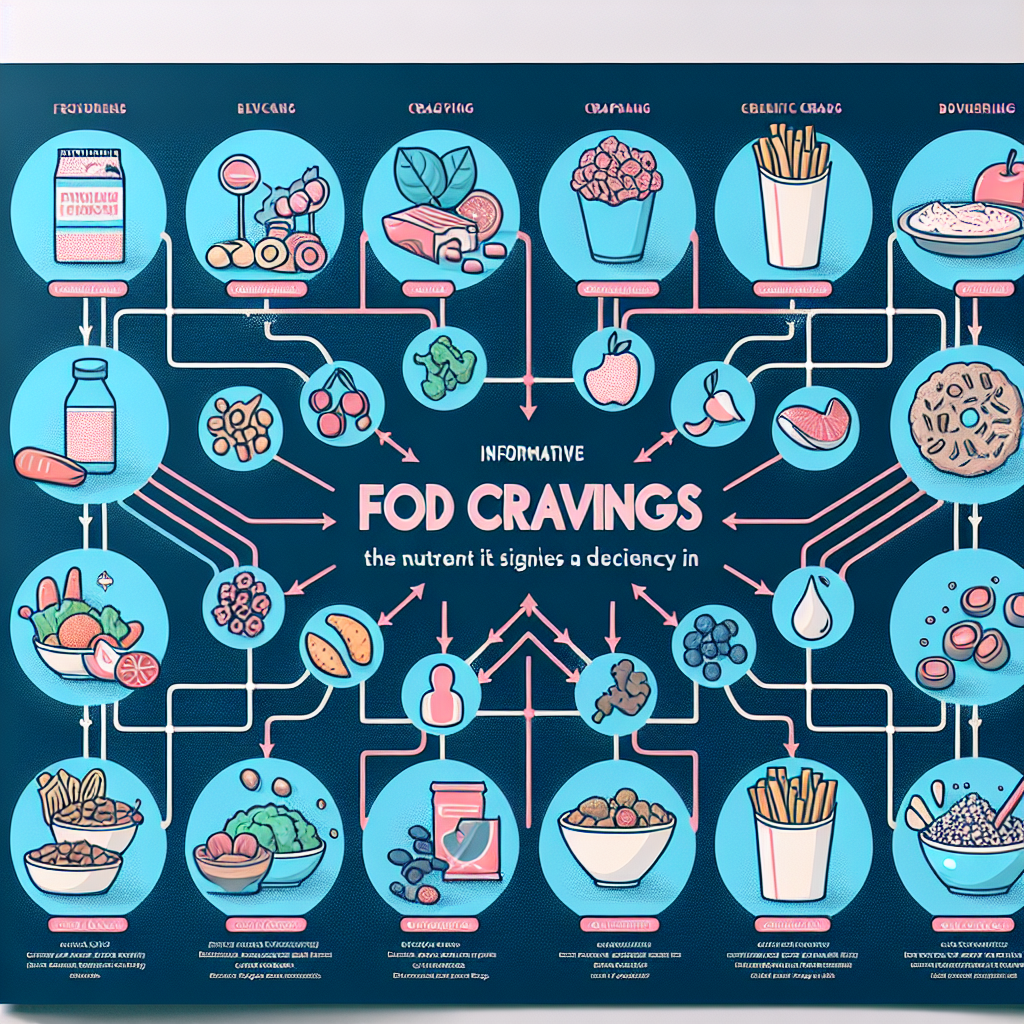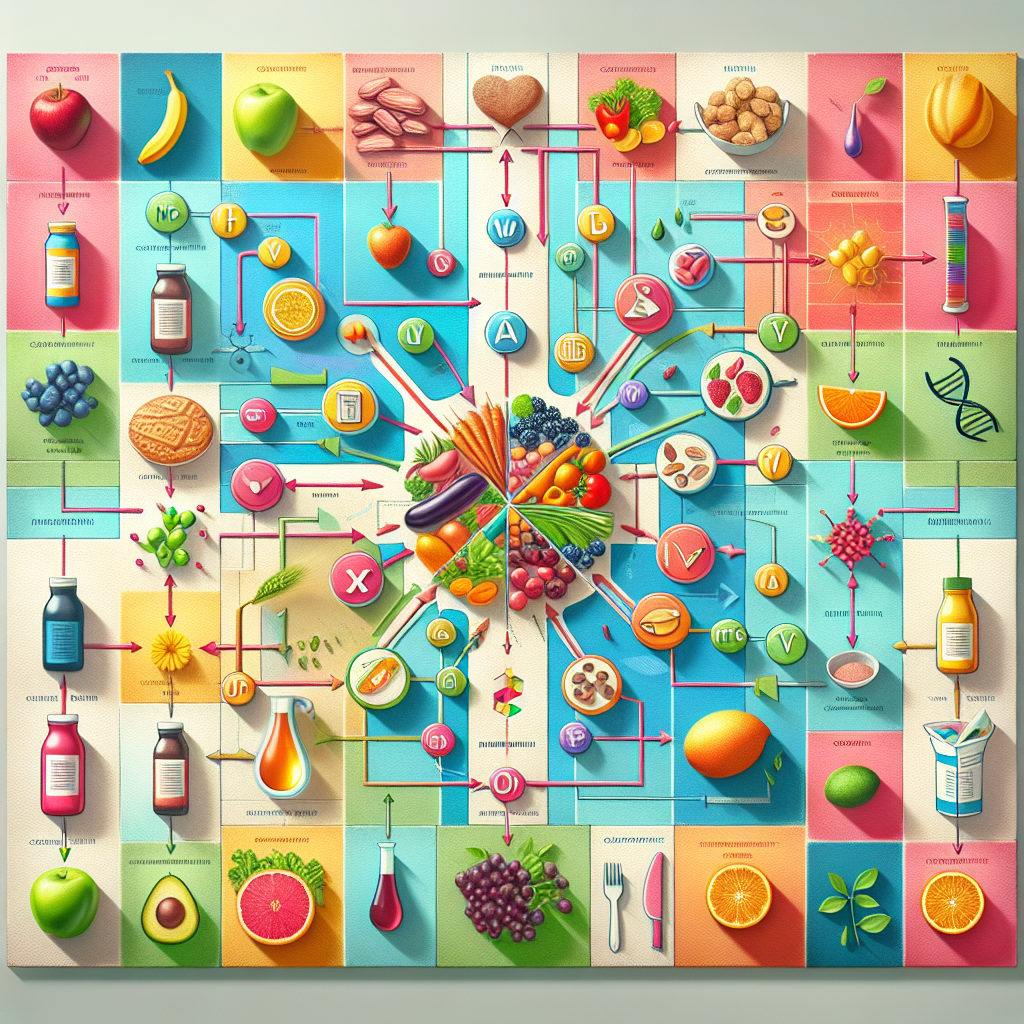What Your Cravings Really Mean About Your Nutrient Needs

Discover what your cravings really mean about your nutrient needs. Uncover the hidden messages your body is sending you and learn how to fulfill your nutritional needs effectively. Click here to start your journey towards vibrant vitality.
Decoding Your Cravings: What They Reveal About Your Nutrient Needs
Cravings are a common experience, often seen as a guilty pleasure or a sign of lack of willpower. However, they can also be an important signal from our bodies, indicating a deficiency in certain nutrients. Understanding the underlying causes of these cravings can help us make healthier dietary choices and meet our nutritional needs more effectively.
Firstly, it’s important to distinguish between cravings and hunger. Hunger is a physiological need for food, while cravings are an intense desire for a specific type of food. Cravings are often for foods that are high in sugar, fat, or salt. While it’s easy to dismiss these cravings as a lack of self-control, they can actually be a sign that your body is lacking certain nutrients.
For instance, if you find yourself constantly craving chocolate, it might be a sign that your body needs more magnesium. Chocolate, especially dark chocolate, is rich in magnesium, a mineral that plays a crucial role in over 300 enzymatic reactions in the body, including the metabolism of food and the synthesis of fatty acids and proteins. Magnesium deficiency can lead to fatigue, muscle cramps, and irregular heartbeat. So, the next time you’re craving chocolate, consider reaching for magnesium-rich foods like nuts, seeds, and leafy green vegetables instead.
Similarly, if you’re constantly craving salty foods like chips or pretzels, your body might be signaling a need for sodium. Sodium is an essential mineral that helps maintain fluid balance, nerve transmission, and muscle function. While excessive sodium intake can lead to high blood pressure and heart disease, too little sodium can also cause problems like muscle cramps and dizziness. If you’re craving salty foods, try incorporating foods with naturally occurring sodium, like celery or beets, into your diet.
Cravings for sugary foods can be a bit more complex. They can be a sign of several nutrient deficiencies, including chromium, carbon, phosphorus, sulfur, and tryptophan. These nutrients are involved in blood sugar regulation and the production of glucose, which is the body’s primary energy source. Instead of reaching for a candy bar when you’re craving something sweet, try eating fruits, vegetables, and whole grains, which are rich in these nutrients.
It’s also worth noting that cravings can be influenced by factors other than nutrient deficiencies. Stress, lack of sleep, and hormonal changes can all trigger cravings. Moreover, the brain often associates certain foods with comfort or reward, which can lead to cravings even when there’s no physiological need for that food.
In conclusion, while it’s important to listen to your body and respond to its signals, it’s equally important to understand what those signals mean. Cravings can be a sign of nutrient deficiencies, but they can also be influenced by a variety of other factors. By understanding the underlying causes of your cravings, you can make healthier dietary choices that not only satisfy your cravings but also meet your nutritional needs. So, the next time you’re hit with a craving, take a moment to consider what your body might really be telling you.
Understanding Your Body: What Your Food Cravings Indicate About Your Nutritional Deficiencies

Food cravings are a common experience, with studies suggesting that more than 90% of people experience them. Every person has a unique relationship with food, and cravings are a significant part of this relationship. They are intense desires for specific foods that are stronger than normal hunger. But have you ever stopped to wonder what these cravings really mean? They could be your body’s way of telling you that you’re deficient in certain nutrients.
To begin with, let’s consider the craving for chocolate, a common desire among many individuals. While it’s easy to dismiss this as a simple sweet tooth, it could be indicative of a magnesium deficiency. Magnesium is a crucial mineral that aids in over 300 enzymatic reactions in the body, including metabolism and the synthesis of proteins and fats. Dark chocolate is a rich source of magnesium, and a craving for it might be your body’s way of asking for more of this essential mineral.
Similarly, a craving for red meat might be a sign of an iron deficiency. Iron is a vital component of hemoglobin, a protein that carries oxygen from our lungs to the rest of our bodies. If you’re deficient in iron, you might experience symptoms like fatigue, weakness, and a decreased immune function. Red meat is a rich source of heme-iron, a type of iron that’s easily absorbed by the body, and your desire for a juicy steak might be your body’s way of trying to increase its iron levels.
On the other hand, if you find yourself reaching for salty snacks like chips or pretzels, it could be a sign that you’re deficient in sodium or chloride, both of which are key electrolytes that help maintain fluid balance and nerve function in the body. While it’s important to note that excessive sodium can lead to high blood pressure and other health issues, a certain amount is necessary for optimal health.
Cravings for sugary foods, such as candies and pastries, could indicate a deficiency in various nutrients. For instance, a craving for sweets could be a sign of low blood sugar levels, which might suggest a deficiency in chromium, a mineral that helps control blood sugar levels. Alternatively, it could also indicate a deficiency in tryptophan, an amino acid that’s used by the body to produce serotonin, a neurotransmitter that regulates mood, appetite, and sleep.
Lastly, if you’re constantly craving cheese, it might be a sign that you’re deficient in essential fatty acids or calcium. Cheese is a rich source of both these nutrients, and a strong desire for it might be your body’s way of trying to up its intake.
In conclusion, while food cravings can sometimes be driven by emotional factors like stress, boredom, or mood, they can also be a sign of nutrient deficiencies. It’s important to listen to your body and understand what it’s trying to tell you. However, it’s equally important to maintain a balanced diet and not overindulge in specific foods just because you’re craving them. If you’re experiencing persistent cravings, it might be worth consulting a healthcare professional or a nutritionist to ensure that you’re meeting all your nutritional needs.
Cravings and Nutrient Needs: Unraveling the Hidden Connection
Cravings are a common experience, often leaving us yearning for specific foods, be it a bar of chocolate, a bag of salty chips, or a juicy burger. While it’s easy to dismiss these cravings as mere whims of the palate, they may actually be indicative of our body’s nutrient needs. This article aims to unravel the hidden connection between cravings and nutrient needs, shedding light on what your cravings really mean.
To begin with, it’s important to understand that cravings are not necessarily a sign of hunger. They are rather a complex interplay of psychological, hormonal, and physiological factors. For instance, stress can trigger cravings for comfort foods, which are typically high in sugar and fat. On the other hand, hormonal fluctuations during menstrual cycles can lead to cravings for chocolate, a rich source of magnesium.
However, the most intriguing aspect of cravings is their potential link to nutrient deficiencies. The body, in its innate wisdom, may crave certain foods when it’s deficient in specific nutrients. For example, a craving for red meat might indicate a deficiency in iron, while a yearning for cheese could signal a lack of essential fatty acids and calcium.
Cravings for sweets, particularly chocolate, are among the most common. While it’s easy to attribute this to a simple love for sweets, it might actually be a sign of magnesium deficiency. Chocolate, especially dark chocolate, is rich in magnesium, a mineral that plays a crucial role in over 300 enzymatic reactions in the body, including energy production and nerve function.
Similarly, a craving for salty foods like chips or pretzels might be your body’s way of signaling a need for sodium, a mineral that helps maintain fluid balance and nerve transmission. However, it’s important to note that excessive sodium intake can lead to high blood pressure and other health issues. Therefore, it’s advisable to opt for healthier sources of sodium like olives, seaweed, or Himalayan pink salt.
On the other hand, if you find yourself constantly reaching for a cup of coffee, it might not just be the caffeine kick that your body is after. Regular coffee cravings could indicate a deficiency in sulfur, iron, or B-vitamins, all of which are essential for energy production and metabolism.
While these correlations between cravings and nutrient needs are fascinating, they are not definitive. Cravings can be influenced by a multitude of factors, including emotional state, hormonal balance, and even cultural conditioning. Moreover, giving in to unhealthy cravings can lead to a vicious cycle of nutrient deficiencies and further cravings.
Therefore, it’s crucial to maintain a balanced diet rich in a variety of nutrients. If you find yourself constantly battling specific cravings, it might be worth consulting a healthcare professional or a nutritionist. They can help identify potential nutrient deficiencies and guide you towards healthier food choices.
In conclusion, while cravings can sometimes be a sign of underlying nutrient deficiencies, they are not a foolproof indicator. It’s essential to listen to your body, but also to nourish it with a balanced diet and seek professional advice when needed. So, the next time you find yourself craving a specific food, take a moment to consider what your body might actually be trying to tell you.